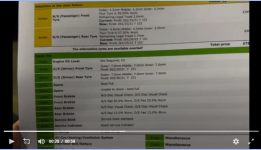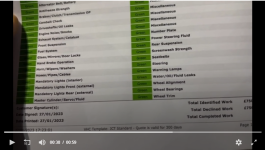Buys a porsche, is shocked by service cost. What a moron
I was going to say, EV or not EV, Porche service is going to be stupid expensive. That whole article and video is a hackjob by someone who openly declares himself as Anti-EV. Dude also owns an ICE porche and mentions he pays >$800 for an oil change (and apparently that's perfectly OK?), but his service on the Taycan cost $100 more which seems inconsequential in the world of Porche, but if course, he needed new tires on that same visit, so that jacked the price to $1800, and $1800 is a bigger number than $800, and that's what he's upset about.

I guess tires on his Porche Boxter are free.
Anyhow, being about to jump back onto the full EV bandwagon vs PHEV, I've been looking at plugshare.com again as well as some third party sources at the DC charging landscape. In the few years since we sold our 2017 Ioniq it's got exponentially better and faster.
With access to the Tesla charging network now things are certainly more widespread, but there's a few problems a lot of non-Tesla owners are experiencing - first, almost all Tesla chargers are 400v architecture whilst may new EV's including our new Ioniq5 are 800v architecture, so it can lead to slower charging in many cases than a lot of other charging networks that support 800v. Reportedly Tesla is indeed updating their chargers to the newer architecture however, but it's also reportedly going very, very slow.
The charge port plug thing is still a challenge although Tesla is introducing a really neat feature called the "Magic dock" where when you select to charge a CCS car instead of a NACS car, the CCS adapter actually unlatches and automatically comes out of the holster ready to go. Love it or hate it, Tesla really does nail the charging infrastructure thing. People are not happy about the fees though, seems that most stations are charging around 50c/kwh whereas a lot of other networks that are charging on a per minute basis but also at much higher rates of charge (supporting the 800v architecture in many cases) end up being 30-50% less expensive.
In short, the charging network is getting way better but there's still a lot of technicalities for those who care about the small stuff. If you care less about the small stuff and a few dollars here and there in price vs "is there public chargers when I need them", then the market is vastly improved in even the last few years. Standardization so far as the charger plugs will come eventually (we're 90% of the way there now with NACS taking over), and pricing, well, that'll be no different than how a gas station in one place can charge more than a gas station down the street or in the next town, consumers will have to shop around for the best price still if they care enough to.
In the end, 98% of our charging will be in the convenience of our own driveway as is the case with most EV owners...with a 400-500km range on the extended range model we bought I cannot see many circumstances where we'll even *need* public charging except for the occasional road trip, or possibly if we end up towing on a far trip - it has a 2000-3000# tow rating so it'll tow our camper just fine if we wanted to. Our Gen2 Volt will maintain the bulk of any long distance camper hauling duties though.




























